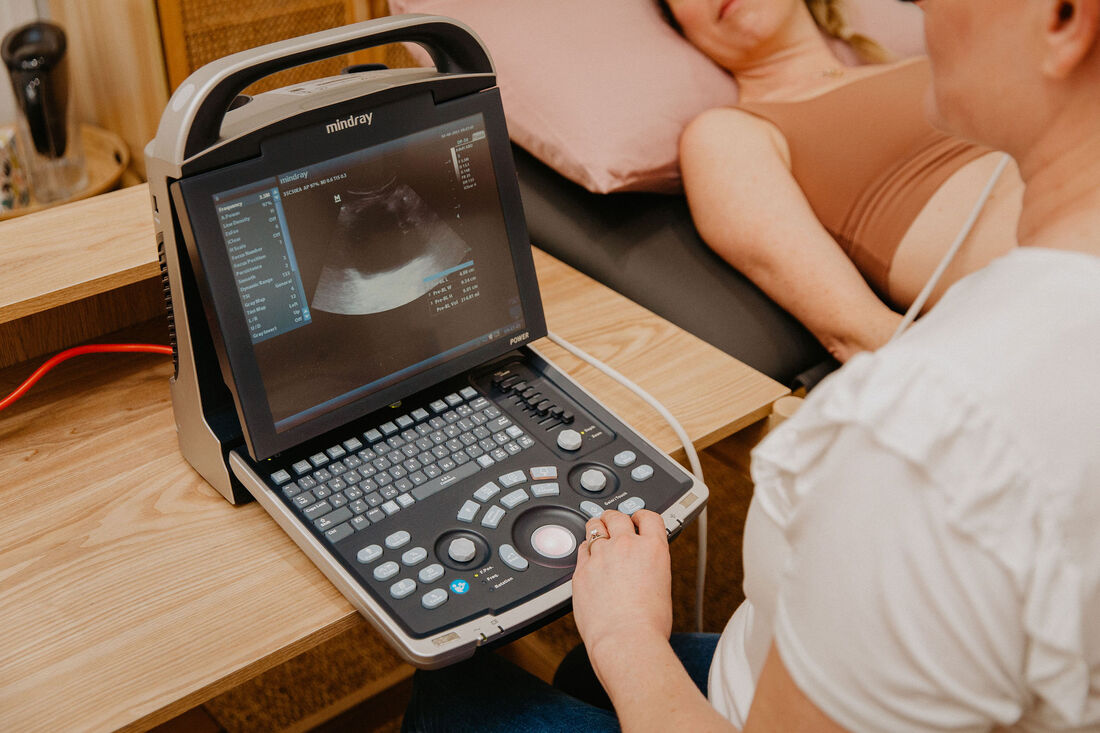Polycystic Ovary Syndrome (PCOS) Physiotherapy Tarragindi
Polycystic ovary syndrome (PCOS) is a common endocrine disorder that affects many women worldwide. In this comprehensive guide, we'll explore the nuances of PCOS and discuss how women's health physiotherapy, including clinical Pilates, can play a vital role in its management and symptom relief.
What is Polycystic Ovary Syndrome (PCOS)?
Polycystic ovary syndrome (PCOS) is a hormonal disorder characterised by imbalances in reproductive hormones, leading to various symptoms such as irregular menstrual cycles, ovarian cysts, hormonal imbalances, and metabolic disturbances. PCOS can manifest differently in each woman, presenting a range of symptoms that may impact fertility, menstrual regularity, and overall health.
How is Polycystic Ovary Syndrome (PCOS) Diagnosed?
Diagnosing PCOS typically involves:
How Can Physiotherapy Help After Polycystic Ovary Syndrome (PCOS) Diagnosis?
Women's health physiotherapy offers valuable support and interventions following PCOS diagnosis:
How Can Clinical Pilates Help with Polycystic Ovary Syndrome (PCOS)?
Clinical Pilates can complement physiotherapy interventions for PCOS by:
Other Considerations:
Polycystic ovary syndrome (PCOS) can present various challenges for women, but with the right support and interventions, symptoms can be managed effectively. By integrating women's health physiotherapy and clinical Pilates into the treatment plan, women with PCOS can receive comprehensive support to improve hormonal balance, manage symptoms, and enhance overall well-being. If you've been diagnosed with PCOS or suspect you may have it, please don't hesitate to contact us for expert guidance and personalised care. We're here to empower you on your journey to better health and vitality.
If you or a loved one are experiencing symptoms of Polycystic Ovary Syndrome (PCOS), call our friendly admin on 07 3706 3407 or email us at [email protected]. We would love to work with you.
What is Polycystic Ovary Syndrome (PCOS)?
Polycystic ovary syndrome (PCOS) is a hormonal disorder characterised by imbalances in reproductive hormones, leading to various symptoms such as irregular menstrual cycles, ovarian cysts, hormonal imbalances, and metabolic disturbances. PCOS can manifest differently in each woman, presenting a range of symptoms that may impact fertility, menstrual regularity, and overall health.
How is Polycystic Ovary Syndrome (PCOS) Diagnosed?
Diagnosing PCOS typically involves:
- Comprehensive Medical History: Evaluation of symptoms, menstrual history, medical conditions, and family history to identify potential risk factors and hormonal imbalances.
- Physical Examination: Assessment of physical signs such as weight gain, hirsutism (excessive hair growth), acne, and signs of insulin resistance.
- Hormonal Testing: Blood tests to measure hormone levels, including testosterone, estrogen, luteinizing hormone (LH), follicle-stimulating hormone (FSH), and insulin, to identify hormonal imbalances characteristic of PCOS.
- Imaging Studies: Pelvic ultrasound to visualise the ovaries and identify the presence of cysts or follicles.
How Can Physiotherapy Help After Polycystic Ovary Syndrome (PCOS) Diagnosis?
Women's health physiotherapy offers valuable support and interventions following PCOS diagnosis:
- Lifestyle Modification:
- Individualised exercise programs focusing on aerobic exercise, strength training, and flexibility exercises to manage weight, improve insulin sensitivity, and reduce cardiovascular risk factors associated with PCOS.
- Nutritional counselling and dietary interventions to optimise nutrition, manage weight, and regulate blood sugar levels, supporting overall health and hormonal balance.
- Stress Management:
- Incorporation of stress reduction techniques such as mindfulness, relaxation exercises, and breathing techniques to alleviate stress and improve hormonal regulation and emotional well-being.
- Counseling and support to address psychological and emotional aspects of living with PCOS, including anxiety, depression, and body image concerns.
- Pelvic Health Optimisation:
- Pelvic floor assessment and treatment to address pelvic floor muscle dysfunction, pelvic pain, and bladder and bowel symptoms commonly associated with PCOS, promoting pelvic health and overall well-being.
How Can Clinical Pilates Help with Polycystic Ovary Syndrome (PCOS)?
Clinical Pilates can complement physiotherapy interventions for PCOS by:
- Providing a structured exercise program focusing on core stability, postural alignment, and functional movement patterns to improve muscle strength, flexibility, and body awareness.
- Incorporating mindful movement and breathwork to reduce stress, promote relaxation, and enhance overall well-being, supporting hormonal balance and symptom management in women with PCOS.
- Offering a safe and supportive environment for women to engage in physical activity, build confidence, and improve body image while managing the symptoms of PCOS.
Other Considerations:
- Multidisciplinary Collaboration: Collaboration with endocrinologists, gynecologists, nutritionists, and mental health professionals to ensure comprehensive care and address all aspects of PCOS management.
- Individualised Approach: Tailoring treatment plans to each woman's unique needs, symptoms, and treatment goals to optimise outcomes and improve quality of life.
Polycystic ovary syndrome (PCOS) can present various challenges for women, but with the right support and interventions, symptoms can be managed effectively. By integrating women's health physiotherapy and clinical Pilates into the treatment plan, women with PCOS can receive comprehensive support to improve hormonal balance, manage symptoms, and enhance overall well-being. If you've been diagnosed with PCOS or suspect you may have it, please don't hesitate to contact us for expert guidance and personalised care. We're here to empower you on your journey to better health and vitality.
If you or a loved one are experiencing symptoms of Polycystic Ovary Syndrome (PCOS), call our friendly admin on 07 3706 3407 or email us at [email protected]. We would love to work with you.
If you are unsure about which appointment type is right for you, please don't hesitate to get in touch with our friendly reception staff by calling 07 3706 3407 or emailing [email protected].
